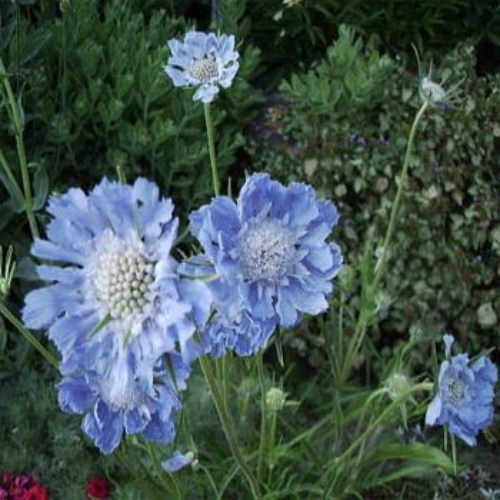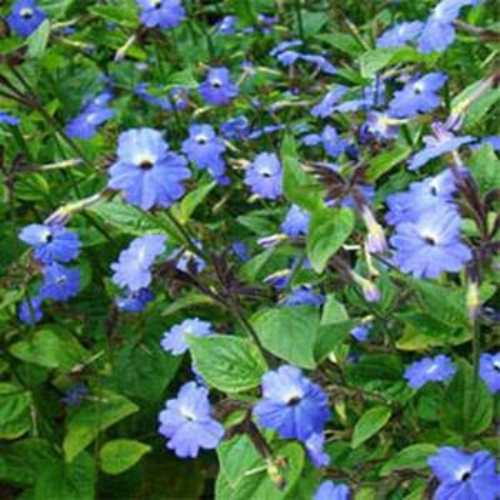Summer Flower Seeds Biography
In July 1957, Mao ordered a halt to the campaign. By that time Mao had witnessed Nikita Khrushchev denouncing Joseph Stalin and the Hungarian Revolution of 1956, events by which he felt threatened. Mao's earlier speech, On the Correct Handling of the Contradictions Among the People, was significantly changed and appeared later on as an anti-rightist piece in itself.
The campaign made a lasting impact on Mao's ideological perception. Mao, who is known historically to be more ideological and theoretical, less pragmatic and practical, continued to attempt to solidify socialist ideals in future movements, and in the case of the Cultural Revolution, employed more violent means. Another result of the Hundred Flowers Campaign was that it discouraged dissent and made intellectuals reluctant to criticize Mao and his party in the future. The Anti-Rightist Movement, that shortly followed and was possibly caused by the Hundred Flowers Campaign, resulted in the persecution of intellectuals, officials, students, artists and dissidents labeled "rightists".[9] The campaign led to a loss of individual rights, especially for any Chinese intellectuals educated in Western centers of learning.
The hundred flowers movement was the first of its kind in the history of the People's Republic of China in that the government opened up to ideological criticisms from the general public. Although its true nature has always been questioned by historians, it can be generally concluded that the events that took place alarmed the central communist leadership. The movement also represented a pattern that has emerged from Chinese history wherein free thought is promoted by the government, and then suppressed by it. A similar surge in ideological thought would not occur again until the late 1980s, leading up to the Tiananmen Square protests of 1989. The latter surge, however, did not receive the same amount of government backing and encouragement.
Another important issue of the campaign was the tension that surfaced between the political center and national minorities. With criticism allowed, some of the minorities' activists made public their protest against "Han chauvinism" which they saw in formal approach of the party officials toward the local specifics.[10]
Harry Wu, founder of the Laogai Research Foundation, described his experiences during the campaign in his books.
In July 1957, Mao ordered a halt to the campaign. By that time Mao had witnessed Nikita Khrushchev denouncing Joseph Stalin and the Hungarian Revolution of 1956, events by which he felt threatened. Mao's earlier speech, On the Correct Handling of the Contradictions Among the People, was significantly changed and appeared later on as an anti-rightist piece in itself.
The campaign made a lasting impact on Mao's ideological perception. Mao, who is known historically to be more ideological and theoretical, less pragmatic and practical, continued to attempt to solidify socialist ideals in future movements, and in the case of the Cultural Revolution, employed more violent means. Another result of the Hundred Flowers Campaign was that it discouraged dissent and made intellectuals reluctant to criticize Mao and his party in the future. The Anti-Rightist Movement, that shortly followed and was possibly caused by the Hundred Flowers Campaign, resulted in the persecution of intellectuals, officials, students, artists and dissidents labeled "rightists".[9] The campaign led to a loss of individual rights, especially for any Chinese intellectuals educated in Western centers of learning.
The hundred flowers movement was the first of its kind in the history of the People's Republic of China in that the government opened up to ideological criticisms from the general public. Although its true nature has always been questioned by historians, it can be generally concluded that the events that took place alarmed the central communist leadership. The movement also represented a pattern that has emerged from Chinese history wherein free thought is promoted by the government, and then suppressed by it. A similar surge in ideological thought would not occur again until the late 1980s, leading up to the Tiananmen Square protests of 1989. The latter surge, however, did not receive the same amount of government backing and encouragement.
Another important issue of the campaign was the tension that surfaced between the political center and national minorities. With criticism allowed, some of the minorities' activists made public their protest against "Han chauvinism" which they saw in formal approach of the party officials toward the local specifics.[10]
Harry Wu, founder of the Laogai Research Foundation, described his experiences during the campaign in his books.
Summer Flower Seeds
Summer Flower Seeds
Summer Flower Seeds
Summer Flower Seeds
Summer Flower Seeds
Summer Flower Seeds
Summer Flower Seeds
Summer Flower Seeds
Summer Flower Seeds
Summer Flower Seeds
Summer Flower Seeds
Summer Flower Seeds
Summer Flower Seeds
Summer Flower Seeds
Summer Flower Seeds
Summer Flower Seeds
Summer Flower Seeds
Summer Flower Seeds
Summer Flower Seeds
Summer Flower Seeds



















No comments:
Post a Comment